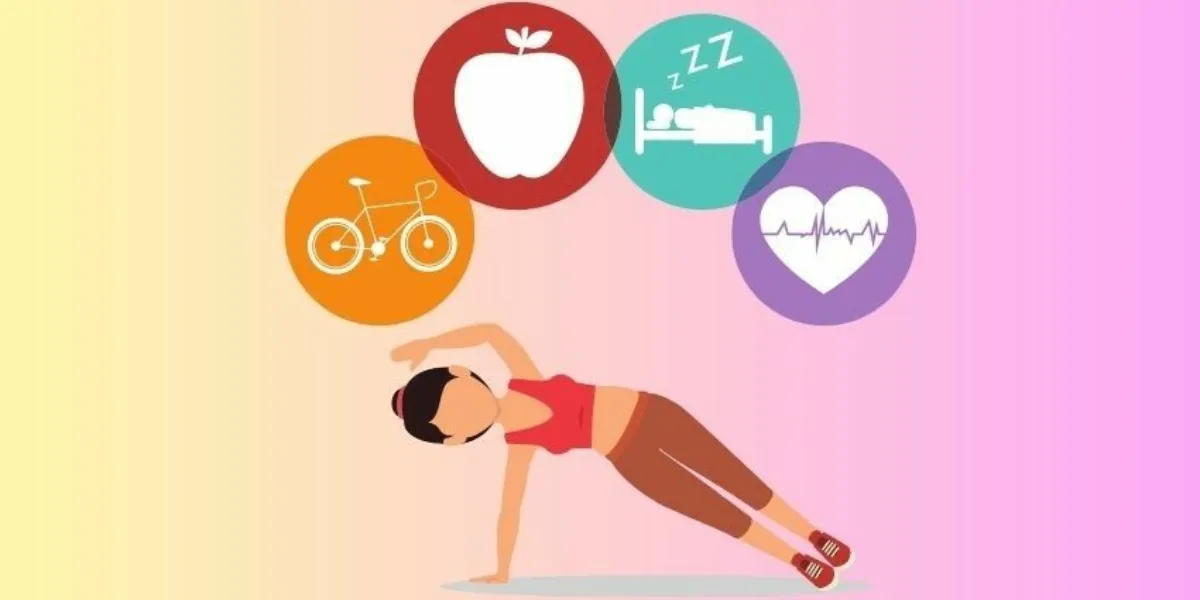Physical therapy plays a crucial role in enhancing one’s overall well-being, and H2 Health Physical Therapy is at the forefront of providing personalized care to transform lives. In this article, we’ll delve into key aspects of H2 Health, addressing common questions about physical therapy.
Table of Contents
ToggleHow many locations does H2 Health Physical Therapy have?
H2 Health Physical Therapy operates at several locations, ensuring accessibility for individuals seeking their specialized services. To find the nearest H2 Health facility, you can check their official website or contact their support team.
What is a physical therapist according to WebMD?
WebMD defines a physical therapist as a healthcare professional specializing in evaluating and treating conditions that affect a person’s ability to move and function. These professionals employ various techniques to improve mobility, relieve pain, and prevent or limit permanent physical disabilities.
The Four Main Types of Physical Therapy
Physical therapy encompasses a range of specialized treatments. These include orthopedic physical therapy, geriatric physical therapy, neurological physical therapy, and cardiovascular and pulmonary rehabilitation. H2 Health Physical Therapy tailors its approach based on individual needs and conditions.
Duration of Physical Therapy Sessions
The duration of physical therapy is contingent upon the specific characteristics and seriousness of the ailment. On average, sessions may last 30 minutes to an hour. The frequency of sessions and the overall duration of the therapy plan will be determined by the physical therapist.
How often should you go to physical therapy?
The frequency of physical therapy sessions varies. It is typically recommended to attend sessions 1-3 times per week. The precise schedule will be determined by the therapist based on the treatment plan and the individual’s response to therapy.
When should you not go to physical therapy?
While physical therapy is beneficial for many conditions, there are instances when it may not be recommended. Individuals with certain infections, severe cardiac conditions, or specific fractures may need to consult with their healthcare provider before starting physical therapy.
Does physical therapy hurt initially?
It’s not uncommon to experience some discomfort during the initial stages of physical therapy, especially if you’re addressing a longstanding issue. However, it’s essential to communicate openly with your therapist to ensure the exercises are within a tolerable range.
Things to Avoid Saying to Your Physical Therapist
Maintaining open communication with your physical therapist is crucial. Avoiding statements like “I can’t do this” or “This won’t work” can hinder the therapeutic process. Trusting your therapist’s expertise and expressing concerns constructively helps build a positive therapeutic relationship.

Can I wear jeans to physical therapy?
While comfort is key, it’s advisable to wear clothing that allows easy movement and access to the area being treated. Athletic wear or loose-fitting clothes is often a better choice than jeans.
Do they touch you in physical therapy?
Yes, physical therapists may use hands-on techniques to assess and treat specific conditions. However, they always prioritize patient comfort and obtain consent before employing any manual therapy techniques.
Do you tip a physical therapist?
Tipping is generally not customary in physical therapy. However, expressing gratitude for exceptional care is always appreciated. Many patients choose to write a thank-you note or provide feedback to acknowledge the therapist’s dedication.
Should I feel pain during physical therapy?
While some discomfort may be normal, you should not experience severe pain during physical therapy. It’s essential to communicate openly with your therapist about any discomfort or concerns, allowing them to adjust the treatment plan accordingly.
How to Identify a Good Physical Therapist
A skilled physical therapist possesses a combination of education, experience, and interpersonal skills. Look for therapists with relevant certifications, positive patient reviews, and a commitment to ongoing professional development.
What to say to your physical therapist
Effective communication with your physical therapist is key to a successful rehabilitation journey. Be open about your symptoms, concerns, and any changes in your condition. Your input helps tailor the treatment plan to your specific needs.
Should you see a doctor or physical therapist first?
In many cases, individuals can directly access physical therapy without a doctor’s referral. However, consulting with your primary care physician can provide valuable insights and ensure a comprehensive approach to your healthcare.
Understanding the Information Your Physical Therapist Wishes to Convey
Physical therapists aim to empower their patients with the knowledge and tools to manage their health. Adhering to the recommended exercises, lifestyle modifications, and follow-up appointments enhances the effectiveness of therapy.
Common Questions Asked by Physical Therapists
During your physical therapy sessions, your therapist may inquire about your medical history, lifestyle, and specific details related to your condition. Answering these questions honestly and thoroughly enables your therapist to tailor the treatment plan to your unique needs.
Can you be friends with your physical therapist?
While a friendly and supportive therapeutic relationship is encouraged, maintaining professional boundaries is essential. Friendship dynamics can interfere with the therapeutic process. It’s best to view your physical therapist as a trusted healthcare professional.
Should you rest after physical therapy?
Moderate activity is generally recommended after physical therapy to maintain flexibility and strength. However, excessive or strenuous activity immediately after a session may be counterproductive. Your therapist will guide post-therapy activities.
The Best Time of Day for Physical Therapy
The optimal time for physical therapy can vary based on individual preferences and schedules. Some people find mornings more suitable, while others prefer evenings. Consistency is key, so choose a time that aligns with your routine.
Is it OK to skip a day of physical therapy?
Consistency is vital for the success of physical therapy. While occasional scheduling conflicts may arise, try to attend sessions as recommended. Missing sessions consistently can slow progress, so communicate with your therapist if adjustments are needed.
Should you drink water after physical therapy?
Staying hydrated is crucial for overall health, including during and after physical therapy. Drinking water helps flush out toxins, aids in recovery, and supports optimal bodily functions. Be sure to maintain adequate hydration throughout the day.
Should you always ice after PT?
Icing after physical therapy sessions can help reduce inflammation and alleviate soreness. Your therapist may recommend specific guidelines for using ice, such as duration and frequency. Following these recommendations contributes to an effective recovery.
Should you ice your back after physical therapy?
If your therapist advises it, applying ice to your back after a session can be beneficial. Ice helps reduce swelling and provides relief from any discomfort. Always follow your therapist’s instructions regarding the use of ice or any other post-therapy recommendations.
How long should you be sore after physical therapy?
It’s not uncommon to experience some soreness after physical therapy, especially when beginning a new exercise or stretching routine. This soreness is usually temporary and should improve within 24 to 48 hours. If persistent or severe, inform your therapist.
Is ice or heat better after PT?
The choice between ice and heat depends on the nature of your condition. Ice is generally recommended for acute injuries to reduce inflammation, while heat is beneficial for chronic conditions to promote blood flow and relax muscles. Always follow your therapist’s guidance.
H2 Health Physical Therapy is dedicated to providing personalized care that caters to individual needs and conditions. Whether you’re recovering from an injury, managing a chronic condition, or seeking preventive care, their team of skilled therapists is committed to guiding you on your journey to optimal health. Explore the transformative possibilities of H2 Health Physical Therapy and take the first step toward a healthier, more active life.














